accidents
Latest
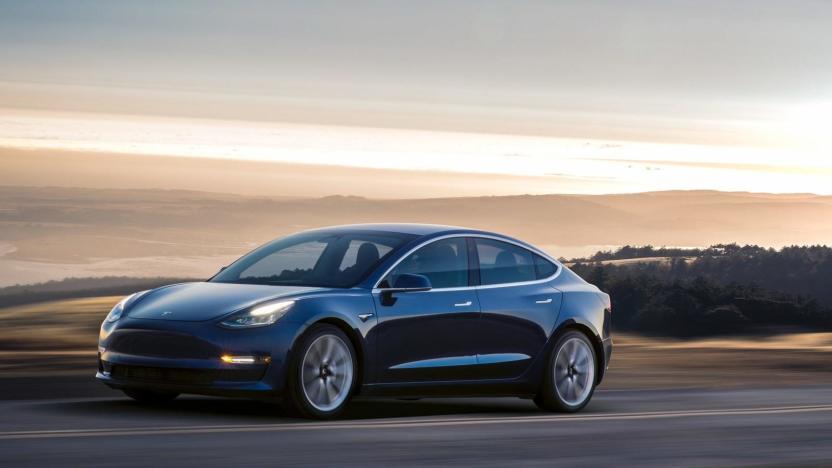
The Dutch government claims it can decrypt Tesla's hidden driving data
Tesla's closely-guarded driving data has been decrypted for the first time, according to a Dutch government-run forensic lab.
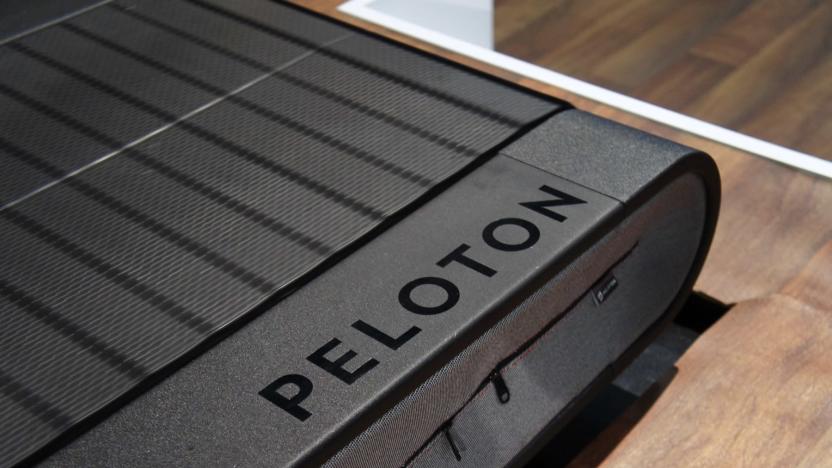
Peloton treadmill owners will be able to run again without a subscription
Peloton treadmill users will be able to use the "Just Run" feature with or without a subscription and still be able to lock it up with a pin code.
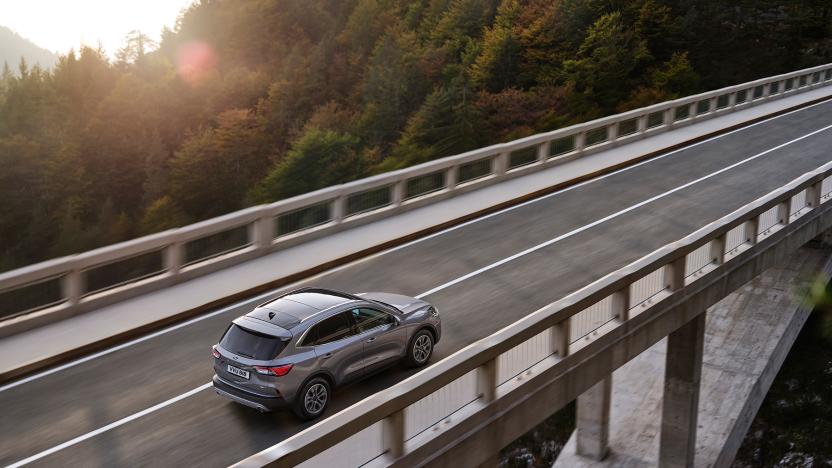
Ford begins sharing its driver-collected accident data with other car makers
That’s why Ford has started sharing its own car data, which includes airbag activations, emergency braking and fog light usage, with other manufacturers.

Report: Boeing's crucial 737 Max safety analysis was flawed
Boeing's original 737 Max safety analysis, used by the FAA to certify the aircraft, may have had several serious flaws, according to a report from the Seattle Times. The problems revolved around a software system called MCAS, suspected to have contributed to the Lion Air and Air Ethiopia crashes that killed 346 people in total. Investigators are also looking at possible maintenance lapses and potential pilot error. The situation may have been compounded by FAA rules that allow aircraft manufacturers to do some of the certification themselves.
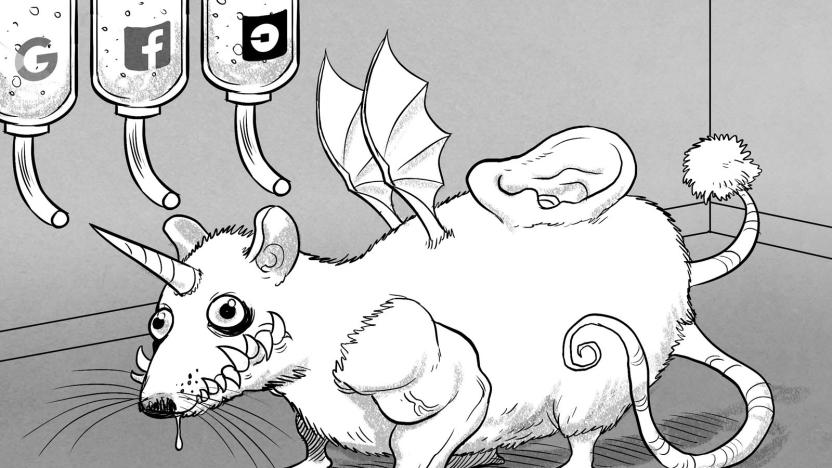
Uber, Google, Facebook: Your experiments have gone too far
It was 2014, around the time when Travis Kalanick referred to Uber as his chick-magnet "Boober" in a GQ article, that I'd realized congestion in San Francisco had gone insane. Before there was Uber, getting across town took about ten minutes by car and there was nowhere to park, ever. With Boober in play, there was parking in places there never were spaces, but the streets were so jammed with empty, one-person "gig economy" cars circling, sitting in bus zones, mowing down bicyclists whilst fussing with their phones, still endlessly going nowhere, alone, that walking across the city was faster.
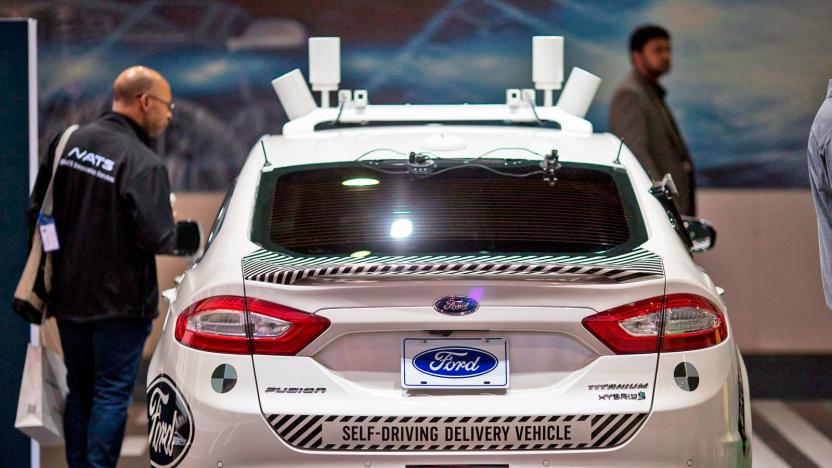
Ford takes an anti-Uber approach to self-driving cars
As Uber and Tesla have learned, it doesn't take a lot of bad press to shatter public trust on autonomous vehicles. Ford has taken that lesson to heart, saying it would rather instill confidence in self-driving cars than be first to market. In a letter to the US Department of Transportation (DoT) and 44-page report called "A Matter of Trust," the automaker detailed how it plans to safely test its self-driving vehicles on public roads.

Please don't jump out of your car and dance to Drake, NTSB pleads
Drake might be the king of memes, but the latest, for his track In My Feelings, has attracted the wrong kind of viral attention. The US National Transportation Safety Board (NTSB) is asking fans to please, please, not do that #InMyFeelings challenge that involves jumping out of a moving car and dancing. On top of that, drivers should definitely not film said challengers, as that's equally stupid and in violation of pretty much all the distracted driving laws.
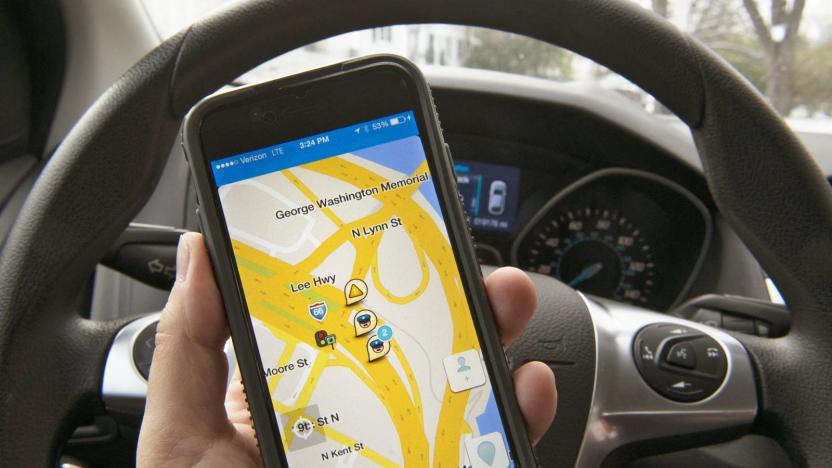
Waze's traffic data could help emergency services save lives
Soon, Waze data will not only help drivers avoid accidents, but help emergency responders identify them as they happen. The Google-owned navigation service has partnered with the European Emergency Number Association (EENA) to anonymously share data that will help police, ambulance and fire services detect and respond to incidents in real-time, potentially saving lives in the process.

Mercedes gives first responders an AR view of its cars
Only advertisers love QR codes, but Mercedes-Benz actually made them useful in the real world. By putting the codes on the B-pillars and gas doors of its vehicles, firefighters can use its Rescue Assist app and quickly figure out how to help folks involved in an accident. The automaker made the latest version easier to use by adding augmented reality (AR) and 3D visualization features. That lets first responders see dangerous components -- like fuel lines and high-voltage components in electric and hybrid cars -- overlaid on the real-world vehicle, Pokémon-style.

How Google's robotic cars deal with human stupidity
Like the Terminator T-800, Google's self-driving cars don't feel pity, remorse or fear. But they also never lose their patience or get distracted by smartphones, and Google has revealed data collected by its vehicles showing just how bad we human drivers can get. It said the goal with the Medium article was to improve road safety by reminding us that "driver error causes 94 percent of crashes." Program director Chris Urmson said that "our safety drivers routinely see people weaving in and out of their lanes; we've spotted people reading books, and even one playing a trumpet."

NASA dropped this Cessna 82 feet... for your safety
If you survive a plane crash but your emergency locator transmitter (ELT) doesn't, it'd be a cruel irony if rescuers never found you. But NASA, of all agencies, has crashed a light airplane to make those devices stronger and better. "It's not obvious to the public what NASA does with search and rescue," says SAR mission manager Lisa Mazzuca, referring to NASA's role in improving aviation safety. She explains that ELTs are supposed to automatically transmit distress signals to satellites after aircraft accidents, so "NASA's here to innovate that technology, which will ultimately improve the probability of a successful rescue." The problem? ELTs often fail "because of inadequate performance specifications."

Google Maps to include US highway railroad crossings (updated)
US Railway crossing accidents are up sharply over last year, but the Federal Railway Administration (FRA) is about to get some high-tech help. Google's Maps will eventually include numerous public and private highway rail crossing locations across the nation. The app will also give drivers navigating with Maps audio and visual alerts when they approach those spots. The FRA said that 270 people were killed in rail crossing accidents in 2015, 48 more than last year. They speculated that, ironically, the increase may be partly due to inattention caused by increased smartphone use on roads.

Russia's deputy PM blames space failures on 'moral decay'
Russia's Roscosmos space program doesn't have a lot of cash to waste after its budget was cut by 35 percent in March. But an internal audit found that it flushed $1.8 billion down the toilet anyway, according to the Moscow Times. The nation's deputy prime minister said many of the losses were caused by "acts of fraud, abuse of authority and forgery of documents." Referring to two recent setbacks, including the loss of an ISS cargo ship, he added that "with such a level of moral decay, one should not be surprised at the high accident rate."

Panasonic details radar-based technology that can detect collisions in low light
Collision detection for cars? Yeah, scientists are on that. But whenever we read about concepts like this, the accompanying literature is often curiously light on details pertaining to real-life driving conditions; it's often unclear how well the tech will fare if you dredge it up on a foggy day, or in the middle of torrential storm. But in that press release you see down there, low visibility and poorly lit roads are all Panasonic wants to talk about. The company just unveiled its new crash-avoidance system, which, like other concepts we've seen, uses millimeter-wave radar technology to detect pedestrians and bicyclists. Since humans tend to reflect weaker radar signals than cars, Panasonic has designed a new pulse radar code sequence that allows pedestrians to leave a bigger footprint. It's so effective, the company claims, that it can detect bystanders up to 40 meters (131 feet) away, and will work at night and through rain, fog, snow and blinding sunlight. That all sounds promising, of course, but as with other concepts, it's not clear, when, exactly we'll see this system put to good use in the real world.

GM demos accident avoidance system with brains and long range
Collision avoidance systems aren't exactly exciting new news any more. But most of these systems, even the ones that jerk the wheel out of your hands, simply detect obstacles -- they don't talk to each other. GM's new prototype uses Dedicated Short-Range Communication (DSRC) to share data with other vehicles. The cars not only detect other motorists, but construction zones, police activity, and slowed or stopped traffic. Unlike a similar concept from Ford, GM doesn't just talk to cars in the immediate area, but can detect trouble up to a quarter mile down the road, offering plenty of warning time for you to change course or hit those breaks. We think the company's estimate that such a system could avoid 81-percent of crashes in the US is a tad optimistic though -- clearly they don't realize how big of jerks most drivers are.

Star Wars: The Old Republic accidentally taunts potential testers [Updated]
What's the worst thing that can happen when you're waiting for a chance to play a highly anticipated game? Being inadvertently taunted about the fact that you aren't in the beta. Star Wars: The Old Republic recently sent out a short survey asking for beta testers to take part, in the hopes of improving the overall testing experience. The only problem was that it wasn't sent out to testers... it was sent out to everyone who had signed up to potentially be a tester. A thread on the official forums has already reached absurd length, causing server hiccups and intermittent inability to properly access all areas of the site. It's unknown how BioWare will apologize for this mishap (aside from a mention on their Facebook page) -- certainly it's not hurting anyone, but it's probably the last thing that most people not involved in the current beta would like to see. And if you see this message in your email, rest assured, it's no scam... just poor cross-pollination of mailing lists. [Update: BioWare has officially confirmed that the emails were sent in error. "We can't apologize enough for getting your hopes up. Sorry again. Those responsible will endure a thousand years in the Sarlacc Pit," said Stephen Reid over Twitter.]

Continental readies stereo camera system for 'seeing' cars
The idea of cars preventing accidents before they happen isn't novel, but at the end of the day, collision detection systems are only as smart as the information being fed to them. That's the ethos behind Continental's new stereo camera system, which spots people, pets, and other objects in a vehicle's path, and measures their height, distance from the vehicle, and how they might be moving. This rig, which will be just another part of Continental's ContiGuard safety system, uses the difference in the lenses' optical paths to make these calculations -- so long as those obstacles are 20 to 30 meters (66 to 98 feet) away. The company also says the cameras are sharp enough to detect partially obscured objects, and claims accuracy within 20 to 30 centimeters (8 to 12 inches). No word on when it will be ready to ship seeing cars, though if the press release is any indication, German drivers are likely to get their test drive first.

Utah woman sues Google after walking directions lead her to a highway
GPS directing motorists to do insane things like drive onto train tracks are nothing new -- we've been hearing tell of such things for years now. And while it can be fodder for a lot of humor, well, the people involved are operating heavy machinery, so in a way it's understandable... right? But a Utah woman is now suing Google over walking directions she got on her BlackBerry which directed her to walk onto a highway, which -- she says -- resulted in her getting hit by a car. According to the court docs, Lauren Rosenberg of Park City, Utah downloaded Google walking directions from one part of town to another, and these directions included walking on Utah State Route 224 -- a major road sans sidewalks. Rather than try to re-route, Lauren followed the directions, and was promptly struck by a car. Rosenberg is now suing Google for around $100,000. Of course, most users of Google's walking (or biking, or public transit) directions will probably have noted that they come with a warning -- "Walking directions are in beta. Use caution – This route may be missing sidewalks or pedestrian paths," so we're not sure how far Rosenberg's case will go, but take this as a cautionary tale, will you? Please.

The Daily Grind: What death do you usually not talk about?
Characters die. It's not usually a permanent thing, but MMOs are kind of built on the premise that your character is going to die at some point, since something hitting you until you hit zero hit points and then wandering off out of boredom removes the flavor of the game. More often than not, when you die, there's no real shame involved. It's just a muttered curse word at worst and then whatever you have to do to get back into the game again, ranging from running back to your corpse to trying to get your level back to apologizing to that megacorporation. However, there are certain deaths -- getting eaten by a goobbue, for instance -- which you privately agree to just not talk about. What death do you remember that's so embarassing, silly, or unnecessary that you normally don't mention it? Maybe you really should have known better beforehand, maybe you just find the circumstances too humiliating, or maybe it still makes you annoyed to even think about it. Whatever the case, today is the day to share your death stories -- and we've all got them. What's the story you wouldn't tell on any other day?

Death Knight class page slip-up
Remember a little while back, when someone accidentally added the Death Knight to the Classes page on the official site? Now the DK class description page is there, although it seems that this too is probably an accident (the DK entry is still gone from the Classes page). As expected, it contains nothing in the way of new information, aside from a fetching misspelling of "Alternative" and a frankly terrifying picture of what looks like a Dwarf Rogue (obviously faked; everyone knows there's no such thing). Still nothing mentioned in "standard bars" about runes or runic power. Also the "Allowable Weapons" (listed as Axes, Defenses, Polearms, Swords, Two-Handed Axes, Two-Handed Swords) still doesn't match up with what we expected (one- and two-handed Axes, Swords, and Maces are what we've been told before). And Blizz doesn't usually call it "Plate Mail;" typically it's just "Plate." Anyway, I vote "slip-up" on this one as well – anyone want to take bets on how long it'll stay up? [Thanks, Hasseo]






